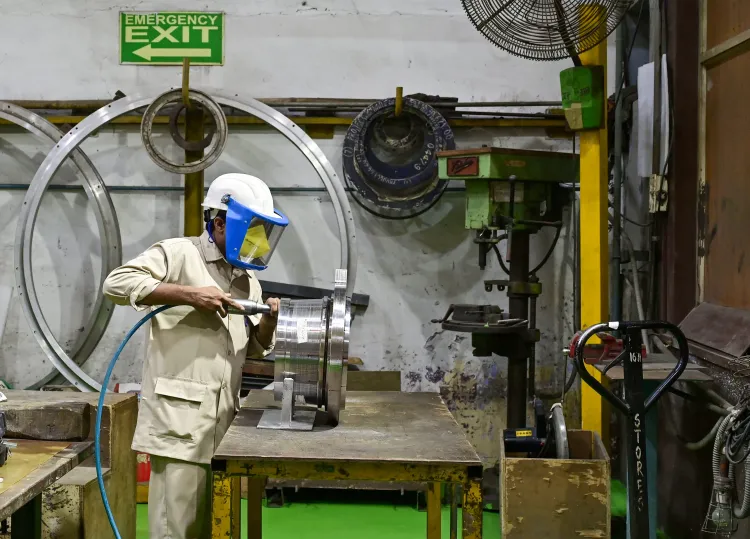Will Manufacturing Firms That Fully Embrace AI Gain a Competitive Edge?

Synopsis
Key Takeaways
- 93 percent of industry leaders recognize the competitive advantage of AI.
- 96 percent have seen improvements in operational efficiency.
- Investment in AI training is crucial, with 80 percent of organizations participating.
- AI enhances real-time decision-making and predictive analytics.
- Employees are rapidly adapting to AI tools, with 89 percent supporting its adoption.
New Delhi, May 19 (NationPress) Approximately 93 percent of industry leaders across eight nations, including India, assert that manufacturing enterprises that thoroughly integrate AI will secure a substantial competitive advantage, according to a report released on Monday.
Moreover, around 96 percent have witnessed enhancements in operational efficiency, with 62 percent achieving a return on investment exceeding 10 percent. Additionally, 80 percent of organizations have made investments in AI knowledge and skills training, as highlighted by the KPMG International report.
About 74 percent are utilizing machine learning, 72 percent are employing predictive analytics, and 67 percent are leveraging agentic AI.
In terms of production and supply chains, AI facilitates real-time decision-making, predictive analytics, and self-optimizing workflows.
The 'Intelligent Manufacturing Report' indicates that AI can merge internal and external data points, such as client consumption trends and global indices, to create a valuable decision support system for cost optimization and intelligent commodity forecasting.
Agentic AI is capable of centrally understanding demand and supply to propose optimal inventory levels and enhance customer delivery compliance.
In workforce management, AI and augmented reality assist in training employees on best practices while automating routine tasks, supporting predictive maintenance, and facilitating dynamic scheduling.
Furthermore, in back-office operations, AI streamlines functions such as finance, procurement, and human resources—areas that remain largely under-digitized in conventional manufacturing, as per the report.
“AI is no longer an option but rather a strategic imperative. As organizations adopt intelligent technologies, they are not only boosting efficiencies but also redefining industry operating models,” stated S Sathish, Partner and National Sector Leader for Industrial Manufacturing at KPMG in India.
With sustainability, data-driven insights, and structured AI adoption at the forefront, manufacturers have a unique opportunity to unlock enduring value and gain competitive advantages in an ever-evolving landscape, he added.
The impact of AI adoption is most pronounced in research and development and IT functions, according to 77 percent of industry leaders. However, its influence permeates the entire value chain, with 70 percent reporting significant operational improvements as AI becomes integrated into core business operations.
Encouragingly, 89 percent believe that employees are rapidly adapting to AI tools and technologies, promoting widespread adoption across the workforce, as noted in the report.









